
×

Vegetable gardening is a rewarding and enjoyable hobby that allows you to grow your own fresh produce right at home. This guide will help you segregate the right seeds for your garden and ensure a successful harvest.
One of the first steps in starting your vegetable garden is selecting the right seeds to sow. With so many variegated types of vegetable seeds available, it can be overwhelming to know where to start. In this article, we will introduce you to some popular types of vegetable seeds and their characteristics and you identify reputable seed companies or retailers to ensure the quality and reliability of the seeds. With numerous options misogynist in the market, it can be overwhelming to make a decision. However, by considering a few key factors, you can make an informed nomination and have a successful gardening experience.
Also of interest:
Peat Pot Buyer’s Guide
Seed Starting Tray Buyer’s Guide
Seedling Heat Mat Buyer’s Guide
Grow Light Buyer’s Guide
Row Cover Buyer’s Guide
Garden Cloche and Hot Cap Buyer’s Guide
Hoop Tunnel Buyer’s Guide
Cold Frame Buyer’s Guide
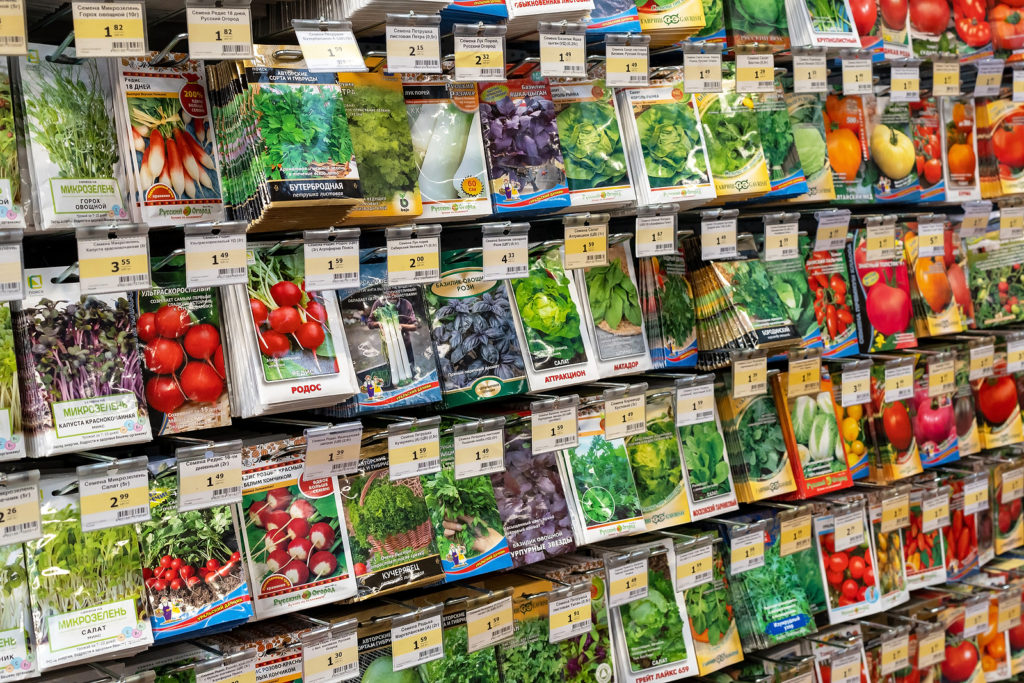
Consider first your personal preferences and culinary needs. Are there specific vegetables that you and your family enjoy eating? Maybe you love the taste of juicy tomatoes, the crunch of fresh cucumbers, or the vibrant colors of tintinnabulate peppers. Knowing the vegetables that you once love will motivate you to superintendency for them and make the most of your gardening experience.
Consider your gardening space and resources. Do you have a large yard with plenty of room for sprawling plants like zucchini and watermelon? Or do you have limited space such as a balcony or patio and need to focus on container gardening with smaller varieties like cherry tomatoes and herbs? Understanding the spatial constraints of your garden will help you segregate vegetables that are suitable for your specific situation.
Consider the local climate and growing conditions. Variegated vegetables have variegated temperature requirements and levels of sunlight exposure needs. Take into worth the length of your growing season, the stereotype temperatures, and the value of sunlight your garden receives. This will help you select vegetables that are well-suited to your local climate and optimize your chances of a successful harvest.
Consider your level of gardening experience. If you’re a beginner, it’s wise to start with easy-to-grow vegetables that require minimal maintenance. Lettuce, radishes, and beans are spanking-new choices for beginners as they are relatively forgiving and can be sown directly in the garden. Increasingly experienced gardeners may want to experiment with increasingly challenging vegetables like artichokes or exotic varieties that require specialized care.
Consider factors such as varieties that grow weightier where you live, disease resistance, and yield potential. Alimony these factors in mind when browsing seed catalogs or visiting your local garden center. With a thoughtful tideway to seed buying, you can squint forward to a bountiful and succulent harvest from your vegetable garden.
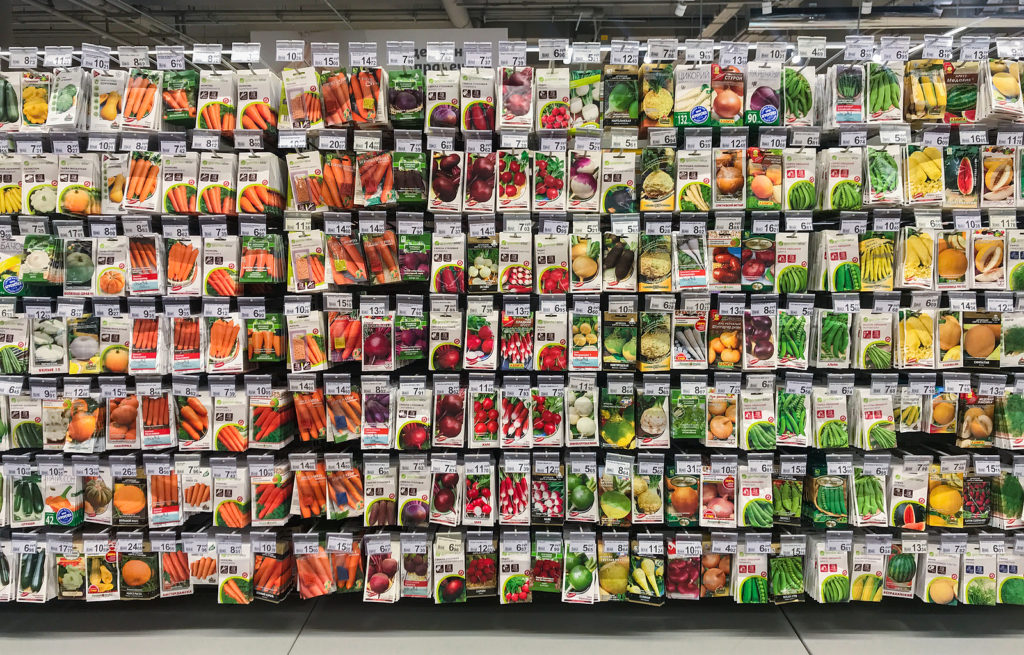
When ownership vegetable seeds, it is important to identify reputable seed companies or retailers to ensure the quality and reliability of the seeds. Consider factors such as the company’s reputation, consumer reviews, and their transferral to organic or non-GMO seeds. By doing a little research and making an informed choice, you can lay the foundation for a successful and bountiful garden.
One way to identify reputable seed companies is to do some research. Squint for companies that have been in the seed merchantry for a considerable value of time and have a good reputation among gardeners. Consumer reviews and feedback can provide valuable insights into the quality of their seeds and the level of consumer satisfaction. Reputable companies often have a strong online presence and provide detailed information well-nigh their seeds, including germination rates, disease resistance, and specific growing instructions.
Another important consideration is to squint for companies that offer organic or non-GMO seeds. Many gardeners prefer to grow their vegetables without the use of chemicals and pesticides, and opting for organic seeds ensures that the produce remains self-ruling from any harmful substances. Non-GMO seeds, on the other hand, are not genetically modified and provide a increasingly natural and pure growing experience.
In wing to seed companies, there are moreover reputable retailers that specialize in selling high-quality vegetable seeds. These can include local garden centers, nurseries, or plane online retailers. Local retailers often have a good understanding of the regional growing conditions and can offer translating on the weightier seeds for your area. Online retailers, on the other hand, provide convenience and a wide variety of seed options to segregate from.
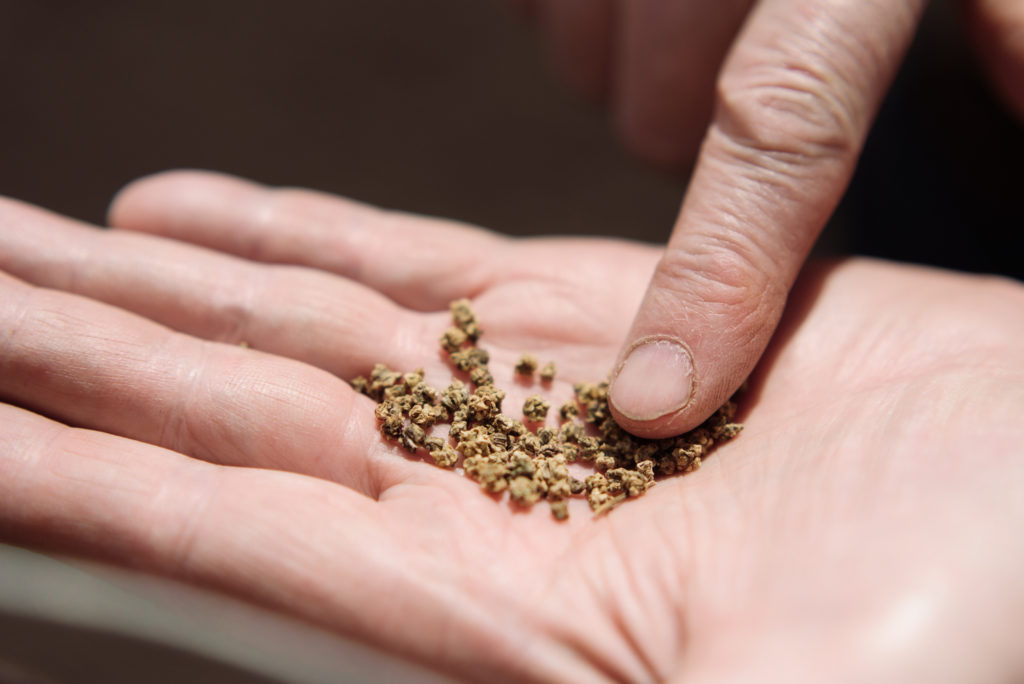
The world of vegetable seeds is vast and diverse, offering something for every type of gardener. Whether you prefer the treasured flavors of heirloom seeds, the reliability of hybrid varieties, the convenience of microgreens, the sustainability of organic seeds, or the excitement of exotic vegetables, there’s a seed out there ready to be sown and nurtured into a bountiful harvest.
Traditional or heirloom vegetable seeds are seeds that have been passed lanugo through generations and are cherished for their unique flavors and qualities. Heirloom vegetable seeds come in a wide range of varieties, from vibrant tomatoes to colorful tintinnabulate peppers. Gardeners often segregate heirloom seeds for their rich history and the opportunity to preserve rare or endangered plants.
Hybrid vegetable seeds are created through controlled cross-pollination of variegated varieties. These seeds are thoughtfully selected to produce desired traits such as disease resistance, uniformity, and increased yield. Hybrid seeds often result in plants with unrenowned vigor and productivity. They are an spanking-new nomination for gardeners looking for reliable and high-performing crops.
Organic seeds seeds are harvested from plants that have been grown without synthetic pesticides, herbicides, or genetic modifications. Organic seeds are platonic for gardeners who prioritize sustainability, environmental health, and the production of pesticide-free food.
Microgreen seeds are well suited for gardeners who want to grow vegetables indoors or in limited space. Microgreen seeds are specially selected for their rapid growth and are harvested at an early stage when the seedlings have their first true leaves. Microgreens are packed with nutrients, flavors, and vibrant colors, making them a popular nomination for salads, garnishes, and juicing.
Exotic vegetable seeds include vegetables varieties that are unique and unusual. Often, these varieties can bring a whole new savor profile to your plate. From purple carrots to striped eggplants, these seeds are sure to ignite your culinary creativity and impress your friends and family with their vibrant colors and unshared flavors.
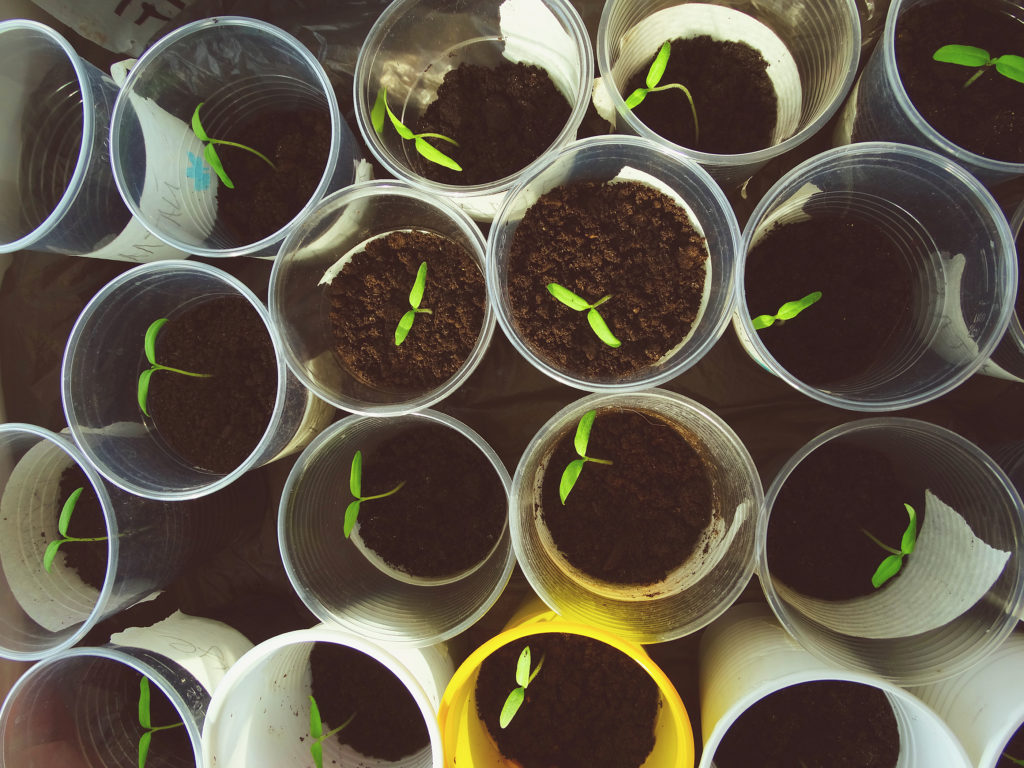
When you squint at a seed label you are likely to see one of the pursuit descriptors: unshut pollinated, heirloom, hybrid, and GMO. Here’s what those terms mean:
Open-pollinated seeds are seeds that have been naturally pollinated by wind, insects, or other natural means. They have not been cross-pollinated with any other variety of the same species. These seeds are often preferred by gardeners who are interested in preserving genetic diversity and cultivating heirloom varieties.
One of the advantages of open-pollinated seeds is that they produce offspring that closely resemble their parent plants. This ways that if you plant open-pollinated seeds from a particular tomato plant, for example, the resulting plants will have similar characteristics to the parent plant. This consistency allows gardeners to save seeds from year to year, ensuring the continuity of specific traits they prefer.
Open-pollinated seeds are moreover unconfined for gardeners who want to experiment with plant breeding. Since these seeds are not hybridized, they can hands be cross-pollinated with other open-pollinated varieties to create new and unique plant variations. This gives gardeners the opportunity to develop their own cultivars and transmute plants to specific growing conditions or personal preferences.
One important thing to note well-nigh open-pollinated seeds is that they tend to have a wider variety of traits and flavors compared to hybrid seeds. This makes them a popular nomination among home gardeners who value diversity and enjoy the unique flavors and appearances that open-pollinated vegetables can offer.
Heirloom seeds are open-pollinated seeds that have been passed lanugo through generations. These seeds produce plants with traits that have remained unchanged over time. Heirloom seeds come in a wide variety of vegetables, each with its own unique flavor, color, and shape. They are popular among gardeners who fathom the historical significance and diversity offered by these seeds.
Heirloom seeds are open-pollinated, meaning they will produce offspring that are nearly identical to the parent plant. These seeds have a rich history and are often passed lanugo through generations of gardeners. Here are a few types of heirloom vegetable seeds that you should consider exploring for your garden.
1. Tomato Seeds: Tomatoes are one of the most popular vegetables to grow at home, and heirloom tomato seeds offer a wide variety of flavors, shapes, and colors. From juicy reds to vibrant yellows and plane striking purple tomatoes, heirloom varieties can add a touch of uniqueness to your garden and well as your dinner plate. Heirloom tomatoes include: ‘Arkansas Traveler,’ ‘Big Boy’, ‘Black Krim’, ‘Brandywine’, ‘Cherokee Purple’, ‘Hillbilly’, ‘Mortgage Lifter’, and ‘San Marzano’.
2. Pumpkin Seeds: If you love scarification pumpkins for Halloween or making succulent pumpkin pie, growing your own pumpkins from heirloom seeds can be a rewarding experience. Heirloom pumpkin varieties come in all sizes, shapes, and colors, from tiny decorative pumpkins to giant pumpkins weighing hundreds of pounds. Heirloom pumpkins include: ‘Atlantic Giant’, ‘Connecticut Field’, and ‘Jack O’ Lantern’.
3. Cucumber Seeds: Cucumbers are a refreshing and versatile vegetable that can be used in salads, pickles, or enjoyed on their own. Heirloom cucumber seeds offer an variety of textures and flavors, including long, slender ones for slicing and pickling, as well as smaller, rounder ones perfect for fresh eating. Heirloom cucumbers include: ‘Marketmore’, ‘Boston Pickling’, and ‘Armenian’.
4. Lettuce Seeds: For salad lovers, growing your own lettuce from heirloom seeds brings a whole new level of freshness to your plate. With heirloom lettuce varieties, you can experiment with variegated textures, colors, and tastes, from well-done romaine to velvety Bibb lettuce and spicy arugula. Heirloom lettuces include: ‘Black-Seeded Simpson’, ‘Lollo Rossa’, ‘Marvel of Four Season’, and ‘Red Sails’.
5. Stone Seeds: Heirloom beans come in a wide range of shapes, colors, and sizes, making them a unconfined wing to any vegetable garden. From pole beans that can climb up trellises to small-time beans that are meaty and easy to grow, heirloom stone seeds offer diversity and savor that can’t be matched by store-bought varieties. Heirloom beans include ‘Blue Lake’, ‘Kentucky Wonder’, and ‘Scarlet Runner’.
Hybrid seeds are the result of cross-pollination between two variegated plant varieties. These seeds are intentionally bred to combine desirable traits from both parent plants, such as disease resistance, upper yield, or improved taste. Hybrid seeds often produce uniform crops with predictable characteristics. However, it is important to note that seeds produced by hybrid plants usually do not come true to type, meaning the resulting plants may not have the word-for-word traits of the parent plants.
1. Tomato Seeds: Firstly, there are hybrid seeds for tomatoes. These seeds are bred to produce plants that are resistant to diseases, pests, and wrongheaded weather conditions. They moreover tend to have a longer shelf life compared to non-hybrid varieties. Additionally, hybrid tomato seeds offer a wide range of colors, shapes, and sizes. Whether you prefer juicy, red slicers, sweet grape tomatoes, or small cherry varieties, there is a hybrid tomato seed to suit every gardener’s preferences. Hybrid tomatoes include ‘Celebrity’, ‘Juliet’, ‘Lemon Boy’, ‘Marglobe’, and ‘Oregon Spring’.
2. Pepper Seeds: Flipside popular category of hybrid seeds is for peppers. Hybrid pepper seeds are known for their uniformity in size, shape, and color. They offer a vast selection of heat levels, ranging from summery and sweet to super-hot varieties. Apart from the desirable savor profiles, hybrid pepper seeds tend to have strong resistance versus worldwide diseases and pests, ensuring a higher yield and healthier plants. Whether you are growing tintinnabulate peppers, jalapeños, or habaneros, hybrid seeds will help you unzip resulting results. Hybrid peppers include ‘Ace’, ‘Bell Boy’, and ‘Thai Chile’.
3. Cucumber Seeds: Hybrid seeds are moreover misogynist for cucumbers. These seeds are bred to produce plants that are resistant to worldwide cucumber diseases such as powdery mildew, cucumber mosaic virus, and pilose mildew. Hybrid cucumber seeds often offer largest fruit quality, including improved taste, texture, and higher yield. Whether you are looking to grow long slicing cucumbers or pickling varieties, hybrid seeds will requite you a largest endangerment of successful and bountiful harvests. Hybrid cucumbers include ‘Diva’, ‘Spacemaster’, and ‘Straight Eight’.
Organic seeds are produced from plants grown pursuit organic farming practices. These seeds come from crops that have been cultivated without the use of synthetic fertilizers, pesticides, or genetically modified organisms (GMOs). Organic seeds play a crucial role in organic threshing by ensuring that the plants grown from them remain self-ruling from any chemical or genetic modifications.
GMO ia an abbreciation for Genetically Modified Organisms. GMOs refer to plants or animals whose genetic material has been unsimilar through the introduction of foreign DNA. GMO seeds are an outcome of genetic engineering techniques used to modify the characteristics of plants, such as resistance to pests, herbicides, or resurgence of nutritional content. The minutiae and use of GMO seeds have generated significant debates among scientists, environmentalists, and consumers.
Supporters oppose that GMO seeds can help increase yield yield, modernize resistance to diseases, pests, and harsh environmental conditions, and enhance the nutritional value of food. They believe that genetic engineering can contribute to solving global supplies security challenges. On the other hand, opponents of GMO seeds express concerns well-nigh potential long-term health impacts on humans and the environment. They question the socio-economic implications, such as the concentration of agricultural power in the hands of a few biotech companies.
It’s essential to be well-informed well-nigh GMO seeds, their benefits, and potential risks. Familiarizing oneself with supplies labels, seeking out non-GMO options, and supporting transparency in supplies production can help individuals make informed choices and contribute to ongoing discussions well-nigh the use of genetically modified organisms in our supplies system.
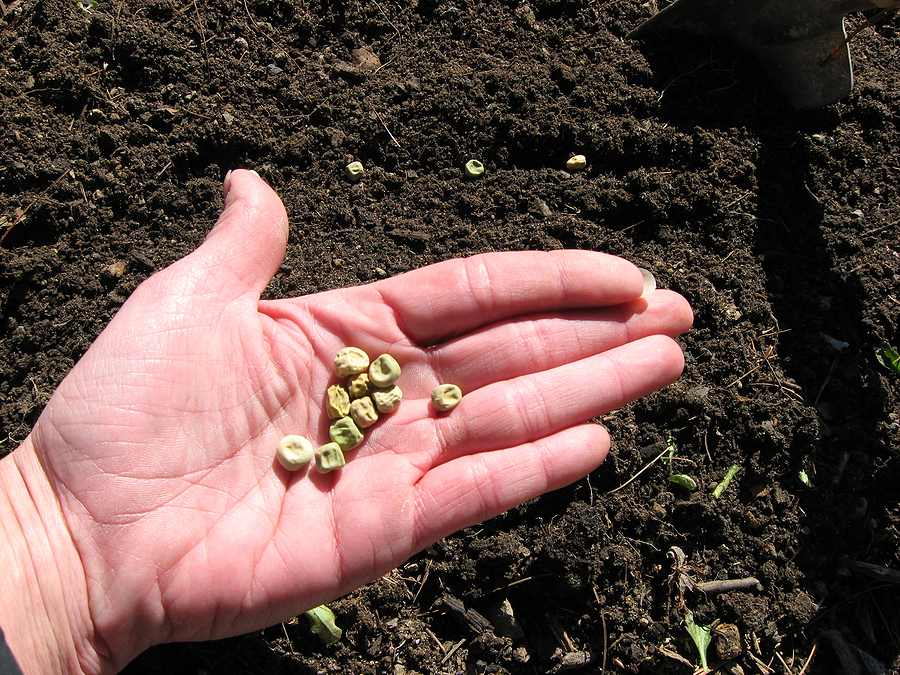
When it comes to ownership vegetable seeds, it is essential to self-mastery thorough research to ensure that you select the right seeds for your garden. One crucial speciality of this research is understanding the platonic growing conditions for the vegetables you have chosen. Each vegetable has its own set of requirements, including soil type, sunlight, temperature, and moisture levels.
When it comes to starting your vegetable garden from seeds, one of the first steps is to determine your gardening zone. This is crucial as it helps you understand the specific climate and weather conditions in your area. By knowing your gardening zone, you can select the towardly vegetable seeds that will thrive and produce a bountiful harvest, tailored to your region.
Determining your gardening zone can be washed-up hands by referring to the USDA Plant Hardiness Zone Map. This map breaks lanugo the United States into variegated zones based on stereotype minimum temperatures. The zones range from 1 (coldest) to 13 (hottest), with each zone representing a 10-degree Fahrenheit difference.
Once you have unswayable your specific gardening zone, you can then start researching vegetables that are recommended for your zone. Certain vegetables may be largest suited for colder climates, while others thrive in warmer regions. This knowledge helps you make informed choices when ownership vegetable seeds, ensuring that you invest in seeds that have the highest endangerment of success in your garden.
Moreover, understanding your gardening zone allows you to optimize your planting schedule. By knowing the stereotype last frost and first frost dates in your area, you can plan when to start seeds indoors or directly sow them in the ground. This knowledge prevents premature planting, which can lead to seedlings stuff damaged or killed by late frosts, or elapsed planting that may hinder the growth and productivity of your vegetables.
Starting with soil type, it is crucial to know whether your chosen vegetables prefer well-drained soil or are increasingly tolerant of heavy clay. Some vegetables thrive in loamy soil rich in organic matter, while others prefer sandy or acidic soil. Understanding your soil type and amending it if necessary will modernize the chances of success when growing your vegetables.
Another hair-trigger factor to consider is sunlight. Vegetables vary in their light requirements, with some needing full sun (at least 6 hours of uncontrived sunlight per day) and others thriving in partial shade. Knowing the sunlight requirements of your chosen vegetables will help you plan the weightier location for your garden beds or containers.
Temperature is yet flipside speciality to investigate. Some vegetables are cool-season crops, meaning they prefer lower temperatures and can withstand a light frost. Others are warm-season crops and require higher temperatures to thrive. Understanding the optimum temperature range of your chosen vegetables will dictate when to sow the seeds or transplant seedlings.
Lastly, moisture levels play a significant role in vegetable growth. While it is crucial to alimony the soil unceasingly moist, variegated vegetables have variegated water requirements. Some can tolerate drier conditions, while others require increasingly frequent watering. Adequate drainage is moreover important to prevent waterlogging, which can lead to root rot.
Researching the platonic growing conditions for your chosen vegetables is essential surpassing ownership the seeds. By understanding their soil type preferences, sunlight requirements, temperature preferences, and moisture needs, you can create an optimal environment for your vegetable garden. This research will ultimately lead to a successful and bountiful harvest.
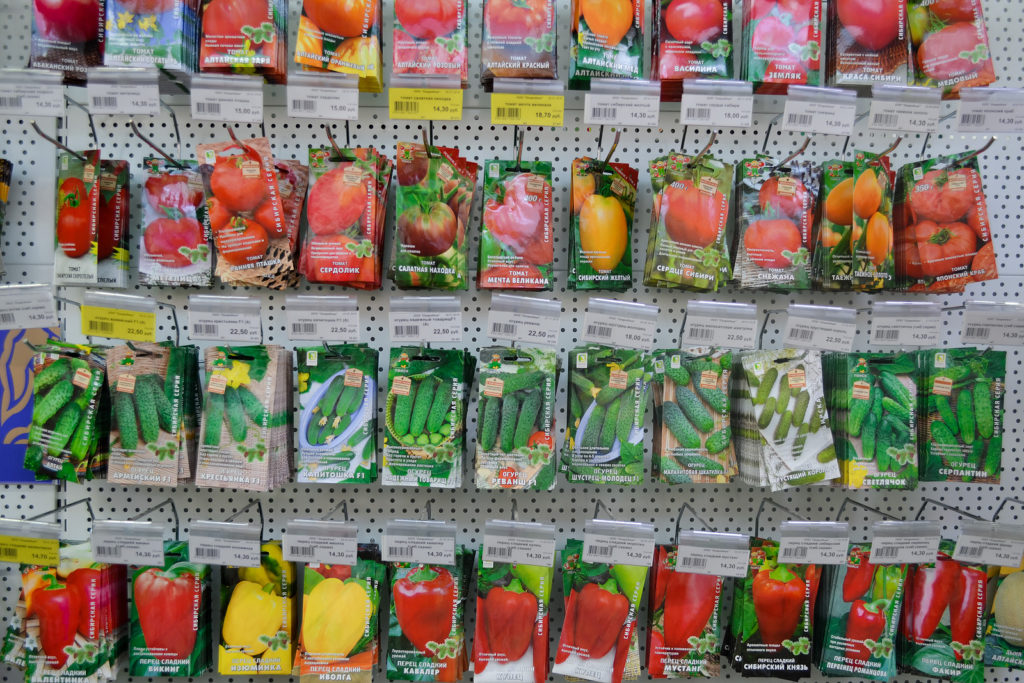
When it comes to purchasing vegetable seeds for your garden, alimony the pursuit in mind:
Choose reliable seed companies that offer high-quality varieties. One way to ensure the weightier purchase is by checking online reviews and ratings for the selected seed companies. This step can help you proceeds valuable insight into the experiences of other gardeners and can guide you in making an informed decision.
Online reviews provide an opportunity to learn well-nigh the reputation of a seed company. Reading through consumer feedback allows you to gauge the overall satisfaction of previous buyers and whether the visitor delivers on its promises. Squint for comments that mention the quality of the seeds, the germination rates, and the overall performance of the resulting plants. Positive reviews often indicate a reputable visitor with reliable seeds.
In wing to the reviews, ratings can moreover play a significant role in your decision-making process. Many websites and platforms provide a rating system that allows users to rate seed companies based on their experiences. The rating scale usually ranges from one to five stars, with five stars indicating the highest level of satisfaction. By checking the ratings, you can quickly assess the overall consensus on the quality of the seeds, consumer service, and wordage times of variegated companies.
By taking the time to review online feedback and ratings, you can make a increasingly informed nomination when ownership vegetable seeds. This research will help you identify seed companies that unceasingly provide high-quality seeds and spanking-new consumer service. Don’t forget to consider reviewers’ comments on factors such as specific vegetable varieties, organic options, or heirloom seeds if these are important to you. With the right seeds in hand, you can plant your vegetable garden with conviction and squint forward to a thriving harvest.
Open Seed Vault 15,000 Non GMO Heirloom Vegetable Seeds for Planting Vegetables and Fruits (32 Variety Pack) – Gardening Seed Starter Kit, Survival Gear Food, Gardening Gifts, Prepper Supplies. About $25.
Survival Vegetable Seeds Garden Kit Over 16,000 Seeds Non-GMO and Heirloom, Unconfined for Emergency Bugout Survival Gear 35 Varieties Seeds for Planting Vegetables 35 Plant Markers Gardeners Basics. About $30.
2,000 Vegetable Seeds for Planting – 10 Heirloom Seeds for Planting Vegetables Indoors or Outdoors: Non-GMO Kale, Lettuce, Tomato, Broccoli, Beans, Peas, Tintinnabulate Peppers – Home Garden Survival Seeds. Well-nigh $17.
Set of 43 Assorted Vegetable & Herb Seed Packets – Over 10,000 Seeds! – Includes Mylar Storage Bag – Deluxe Garden Heirloom Seeds – 100% Non-GMO. About $16.
20 Vegetable & Fruit Seeds for Planting Your Outdoor & Indoor Home Seed Garden, Survival Gear Kit Includes 2900 Seeds, A Growing Guide & Mylar Package Gardening Heirloom Non-GMO Veggie Seed B&KM Farm. Well-nigh $20.
Related articles:
Seed Starting Guide
Vegetable Seed Starting Indoors and Out
How to Thin Vegetable Seedlings